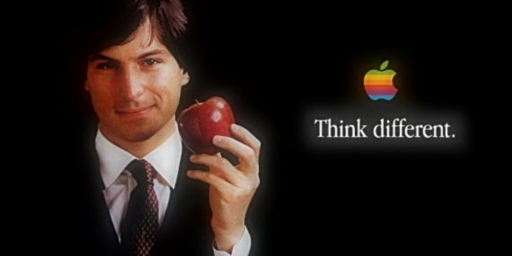Sarah Palin Trademarks Her Name
As of June 17, Sarah Palin is a registered US trademark, serial number 85-170,226.
As of June 17, Sarah Palin is a registered US trademark, serial number 85-170,226.
The Atlantic’s Joshua Green observes that this is “One of many things that suggests that profit, and not the presidency, is what’s motivating Palin.”
At the time the filing went public four months ago, HuffPo’s Suzi Parker explained:
Sarah Palin has become an industry. The former Alaskan governor has had books deals, starred in a reality television show and set up a political PAC that raised $3.5 million last year. Through midterm election endorsements, broadcast on her 2.7 million-fan Facebook page or via her 400,000 follower Twitter feed, Palin has cemented alliances to new GOP governors such as South Carolina’s Nikki Haley and various members of Congress.
But Palin is more than just a former mayor, governor, vice presidential candidate and political force. She has catapulted over most politicians to a status of entertainment icon. She has become a brand — and she’s trying to protect it by trademarking her name.
The Palin brand is so valuable, that other family members are in on it. Sarah Palin’s 20-year-old daughter, Bristol, is a well-compensated spokeswomen on sexual abstinence for the Candie’s Foundation, has become a reality star in her own right on “Dancing with the Stars” and may land a job as a radio show host in Arizona.
[…]
Celebrities often trademark their names to protect their image or brand from others who might try to cash in on their likeness or use their name in an inappropriate way.
[…]
For Sarah Palin’s application, there are two classes of commercial service for which her name would be a registered trademark. One is for “information about political elections” and “providing a website featuring information about political issues.” The second is for “educational and entertainment services … providing motivational speaking services in the field of politics, culture, business and values.”
The “Bristol Palin” application is for “educational and entertainment services, namely, providing motivational speaking services in the field of life choices
[…]
Politicians seldom trademark their name but they might do so to prevent others from using it, for example, to sell shoddy, unapproved merchandise or “official” candidate memorabilia. A search for other political figures such as President Barack Obama and potential 2012 GOP presidential candidates Mike Huckabee, Tim Pawlenty and Mitt Romney do not show any pending trademark applications. It is a rarity, say trademark attorneys, for political figures to file such forms.
ABC’s Sheila Marikar adds:
Don’t try slapping Sarah Palin’s name on a t-shirt (or a bus). She’ll soon be Sarah Palin®.
Both Palins are public figures, so they can’t prevent people writing and commenting about them. But this registration presumably makes it harder to sell merchandise using their names. Here’s an excerpt from an overview of trademark rights on the Harvard website:
7. What constitutes trademark infringement?
If a party owns the rights to a particular trademark, that party can sue subsequent parties for trademark infringement. 15 U.S.C. �� 1114, 1125. The standard is “likelihood of confusion.” To be more specific, the use of a trademark in connection with the sale of a good constitutes infringement if it is likely to cause consumer confusion as to the source of those goods or as to the sponsorship or approval of such goods. In deciding whether consumers are likely to be confused, the courts will typically look to a number of factors, including: (1) the strength of the mark; (2) the proximity of the goods; (3) the similarity of the marks; (4) evidence of actual confusion; (5) the similarity of marketing channels used; (6) the degree of caution exercised by the typical purchaser; (7) the defendant’s intent. Polaroid Corp. v. Polarad Elect. Corp., 287 F.2d 492 (2d Cir.), cert. denied, 368 U.S. 820 (1961).
So, for example, the use of an identical mark on the same product would clearly constitute infringement. If I manufacture and sell computers using the mark “Apple,” my use of that mark will likely cause confusion among consumers, since they may be misled into thinking that the computers are made by Apple Computer, Inc. Using a very similar mark on the same product may also give rise to a claim of infringement, if the marks are close enough in sound, appearance, or meaning so as to cause confusion. So, for example, “Applet” computers may be off-limits; perhaps also “Apricot.” On the other end of the spectrum, using the same term on a completely unrelated product will not likely give rise to an infringement claim. Thus, Apple Computer and Apple Records can peacefully co-exist, since consumers are not likely to think that the computers are being made by the record company, or vice versa.
Between the two ends of the spectrum lie many close cases, in which the courts will apply the factors listed above. So, for example, where the marks are similar and the products are also similar, it will be difficult to determine whether consumer confusion is likely. In one case, the owners of the mark “Slickcraft” used the mark in connection with the sale of boats used for general family recreation. They brought an infringement action against a company that used the mark “Sleekcraft” in connection with the sale of high-speed performance boats. Because the two types of boats served substantially different markets, the court concluded that the products were related but not identical. However, after examining many of the factors listed above, the court concluded that the use of Sleekcraft was likely to cause confusion among consumers. AMF Inc. v. Sleekcraft Boats, 599 F.2d 341 (9th Cir. 1979).
8. What constitutes trademark dilution?
In addition to bringing an action for infringement, owners of trademarks can also bring an action for trademark dilution under either federal or state law. Under federal law, a dilution claim can be brought only if the mark is “famous.” In deciding whether a mark is famous, the courts will look to the following factors: (1) the degree of inherent or acquired distinctiveness; (2) the duration and extent of use; (3) the amount of advertising and publicity; (4) the geographic extent of the market; (5) the channels of trade; (6) the degree of recognition in trading areas; (7) any use of similar marks by third parties; (8) whether the mark is registered. 15 U.S.C. � 1125(c). Kodak, Exxon, and Xerox are all examples of famous marks. Under state law, a mark need not be famous in order to give rise to a dilution claim. Instead, dilution is available if: (1) the mark has “selling power” or, in other words, a distinctive quality; and (2) the two marks are substantially similar. Mead Data Central, Inc. v. Toyota Motor Sales, U.S.A., Inc., 875 F.2d 1026 (2d Cir. 1989).
Once the prerequisites for a dilution claim are satisfied, the owner of a mark can bring an action against any use of that mark that dilutes the distinctive quality of that mark, either through “blurring” or “tarnishment” of that mark; unlike an infringement claim, likelihood of confusion is not necessary. Blurring occurs when the power of the mark is weakened through its identification with dissimilar goods. For example, Kodak brand bicycles or Xerox brand cigarettes. Although neither example is likely to cause confusion among consumers, each dilutes the distinctive quality of the mark. Tarnishment occurs when the mark is cast in an unflattering light, typically through its association with inferior or unseemly products or services. So, for example, in a recent case, ToysRUs successfully brought a tarnishment claim against adultsrus.com, a pornographic web-site. Toys “R” Us v. Akkaoui, 40 U.S.P.Q.2d (BNA) 1836 (N.D. Cal. Oct. 29, 1996).
9. What other potential causes of action are there?
Although likelihood of confusion and dilution are the two main trademark-related causes of action, there exist a number of additional state-law causes of action under state unfair competition law: passing off, contributory passing off, reverse passing off, and misappropriation. Passing off occurs when the defendant tries to pass off its product as the plaintiff’s product. So, for example, manufacturing computers and claiming that they are made by Apple Computer, Inc. Contributory passing off occurs when the defendant assists or induces another (typically a retailer) to pass of its product as the plaintiff’s product. So, for example, inducing a computer store to represent that the computers are made by Apple, when in fact they are not. Reverse passing off occurs when the defendant tries to pass off the plaintiff’s product as its own. So, for example, taking a computer made by Apple, removing the label, and putting on a different label. Finally, misappropriation is a highly unstable, but potentially fruitful source of additional trademark-related claims.
10. What defenses are there to trademark infringement or dilution?
Defendants in a trademark infringement or dilution claim can assert basically two types of affirmative defense: fair use or parody. Fair use occurs when a descriptive mark is used in good faith for its primary, rather than secondary, meaning, and no consumer confusion is likely to result. So, for example, a cereal manufacturer may be able to describe its cereal as consisting of “all bran,” without infringing upon Kelloggs’ rights in the mark “All Bran.” Such a use is purely descriptive, and does not invoke the secondary meaning of the mark. Similarly, in one case, a court held that the defendant’s use of “fish fry” to describe a batter coating for fish was fair use and did not infringe upon the plaintiff’s mark “Fish-Fri.” Zatarain’s, Inc. v. Oak Grove Smokehouse, Inc., 698 F.2d 786 (5th Cir. 1983). Such uses are privileged because they use the terms only in their purely descriptive sense.
Some courts have recognized a somewhat different, but closely-related, fair-use defense, called nominative use. Nominative use occurs when use of a term is necessary for purposes of identifying another producer’s product, not the user’s own product. For example, in a recent case, the newspaper USA Today ran a telephone poll, asking its readers to vote for their favorite member of the music group New Kids on the Block. The New Kids on the Block sued USA Today for trademark infringement. The court held that the use of the trademark “New Kids on the Block” was a privileged nominative use because: (1) the group was not readily identifiable without using the mark; (2) USA Today used only so much of the mark as reasonably necessary to identify it; and (3) there was no suggestion of endorsement or sponsorship by the group. The basic idea is that use of a trademark is sometimes necessary to identify and talk about another party’s products and services. When the above conditions are met, such a use will be privileged. New Kids on the Block v. News America Publishing, Inc., 971 F.2d 302 (9th Cir. 1992).
Finally, certain parodies of trademarks may be permissible if they are not too directly tied to commercial use. The basic idea here is that artistic and editorial parodies of trademarks serve a valuable critical function, and that this critical function is entitled to some degree of First Amendment protection. The courts have adopted different ways of incorporating such First Amendment interests into the analysis. For example, some courts have applied the general “likelihood of confusion” analysis, using the First Amendment as a factor in the analysis. Other courts have expressly balanced First Amendment considerations against the degree of likely confusion. Still other courts have held that the First Amendment effectively trumps trademark law, under certain circumstances. In general, however, the courts appear to be more sympathetic to the extent that parodies are less commercial, and less sympathetic to the extent that parodies involve commercial use of the mark.
So, for example, a risqu� parody of an L.L. Bean magazine advertisement was found not to constitute infringement. L.L. Bean, Inc. v. Drake Publishers, Inc., 811 F.2d 26, 28 (1st Cir. 1987). Similarly, the use of a pig-like character named “Spa’am” in a Muppet movie was found not to violate Hormel’s rights in the trademark “Spam.” Hormel Foods Corp. v. Jim Henson Prods., 73 F.3d 497 (2d Cir. 1996). On the other hand, “Gucchie Goo” diaper bags were found not to be protected under the parody defenseGucci Shops, Inc. v. R.H. Macy & Co., 446 F. Supp. 838 (S.D.N.Y. 1977). Similarly, posters bearing the logo “Enjoy Cocaine” were found to violate the rights of Coca-Cola in the slogan “Enjoy Coca-ColaCoca-Cola Co. v. Gemini Rising, Inc., 346 F. Supp. 1183 (E.D.N.Y. 1972). Thus, although the courts recognize a parody defense, the precise contours of such a defense are difficult to outline with any precision.
Fair Use and parody carve out any of the uses for Palin’s name that I would have.







I wonder how she’d do with a line of sports and outdoor clothing? Would Target touch it?
Is there a registration number? Anybody can apply for a trademark and everyone receives a serial number; but there is a process that one has to go through- not all applications become registered trademarks.
@Raoul: As I understand it, the application was approved after some back-and-forth with the lawyers. It was then published for public comment on May 17, with none received by the deadline of June 17. I gather it will be another 2-3 months before she actually gets the certification but there are no further obstacles in her path, just a matter of administrative backlog.
I wonder if it would somewhat stymie Tina Fey and other impressions of Palin. SNL would be presumably a ‘for profit’ use of her name, instead of just political commentary. Of course, just using the likeness and not the name, may be enough to get around the trademark. It’ll be interesting to see how this plays out.
certainly another avenue for her perpetual victim complex.
“I wonder if it would somewhat stymie Tina Fey and other impressions of Palin. SNL would be presumably a ‘for profit’ use of her name, instead of just political commentary”
I wouldn’t think so. Isn’t satire, for profit or not, protected speech?
Or, to ask it another way, can we imagine a court ruling against a piece of political satire on some trademark infringement grounds? Wouldn’t that imply that all a politician would have to do to immunize him or herself from the slings and arrows of outrageousness would be to trademark his or her name?
@Rodney
IANAL, but I have some background with copyright and trademark. Hustler Magazine v. Falwell cements that even through SNL is a “for-profit” show, the Fey-Palin impersonation is pretty safely satire. Otherwise political cartoons, which all appear in for-profit publications, would have to be banned.
What I would imagine this prevents SNL (and it’s related companies from doing) is selling merchandise with Palin’s name on it. To that point, I’m curious about how this move will effect things like the greeting card companies that use her likeness.
Not the question I was bringing up. The only question in my mind was the ‘for profit’ aspect, where her trademarked name was being used for profit reasons, not just political satire. But, you are probably right that as satire, it would be protected speech anyway.
This is sad news. I had hoped to retire on the profits I projected from my new product, Sarah Palin Word Salad Greens. Each bag was to have a thorough mix of different field greens and many types of lettuce. Everything except arugula, for obvious reasons.
Steve
@steve, you could still possibly cash in on Mooseferatu.
Barracuda Mix?
Actually @Rodney, in addition to Hustler v. Falwell, it turns out Falwell has helped extended the general finding of Hustler v. Falwell into online spaces with Lamparello v. Falwell. That second case ruled that as long as the satire is clearly designated as satire its valid political speech (even if it has ads).
The one thing to note is that at the time of both lawsuits, Falwell had not yet gained a trademark for his name (rather it was the name of a specific program: Listen America with Jerry Falwell), though he was in the the process of registering during the second case. The recent Koch Industries v. Joe Does 1-25 also found for the “satire” side.
I couldn’t find anything recent dealing with an individual suing after successfully receiving a trademark for their name.
Again, based on all the precedent, it seems that SNL will have no problems with skits. I suspect that merch would be a harder thing to defend.
I
Which was my question….
Matt, say a non-profit political organization decided to sell t-shirts at cost saying “If the candidate comes with a Sarah Palin endorsement, vote for the other guy” (or something much shorter with the same sentiment) could she sue for trademark infringement?
I see several issues but mostly that if she is engaged in political activity, should not people be able to engage her in return?
Say it was a for profit corporation who did a parody based on the above sentiment… Same problems?
That to me — and again IANAL — here’s my read: The fact it your are talking about “political speech” makes it different than “commercial speech” (the latter being able to be regulated without too much effort). And also if the non-profit can prove at cost, then that weakens her case even further (as typically the entire question is that of profit). So, based on the rulings that I linked to, I think this would be headed for dismissal.
Now shift a factor or two — i.e. the t-shirts are now explicitly used as a fundraiser — then things might get more dicey. That’s a case that probably would go through a few levels, perhaps even make it all the way to the top. In that case, a key question may be whether or not she is engaged in the political process as a public figure or as a private individual. I could see that call going either way (if she had never held state or run for national office, I think things would be far more cut-and-dry).
Again, IANAL…
But, what seems pretty much settled law is that the trademark doesn’t protect her from being satirized on programs and publications that are funded through commercial advertisements.
SheSafari would take Palin on in a heartbeat. The amount of hunting gear sold to women is increasing and they make/sell a product that is designed to fit women. What is wrong about her making money on her name anyway, Obama did it before he became president and it was just fine, no matter who wrote the books for him. mpw
I don’ see her as a great huntress, but she’s a proven basketball player and runner.
mattb, I have to say I find the distinction meaningless. By endorsing someone, she would be engaging in the political process in a public fashion. What she does in the voting booth is private. Stumping for a candidate? Not so much. But then, my name is not Scalia or Ginsburg.
Actually my query was more about the non-profit/ for profit angle… ie if SNL can make money making fun of her in a skit, why can’t I do it on a t-shirt? Just exactly where is the line here?
Speaking only for myself mpw, nothing.
@OH:
You didn’t say that she endorsed a candidate. And that still might not be enough. If she made public appearances for the candidate, then I think it’s more cut and dry.
The issue, as I understand it one of directness. SNL is being payed to produce content that can include satire. In the case of the T-Shirt, it more a direct pay for Palin’s likeness. Again, IANAL, but from what I know of publishing law that is a pretty big distinction — direct vs. indirect profit.
Matt, I did
tho maybe it was a little obtuse… either way, it is a public act.
I still don’t get the difference between a t-shirt and a skit (parody is parody) , but then that is why I asked you… and await the inevitable SC decision.
I appreciate your time.
Two points @OH:
The shirt could be printed and sold without ever having Palin endorse someone. The only endorsing you mentioned was the phrase on the shirt.
As far as the reasoning why selling adds for a TV show or Newspaper that contains satire is DIFFERENT than directly selling the specific skit/image/merchandise, I’d suggest reading the decision for Hustler v. Falwell (see the link in an earlier email).